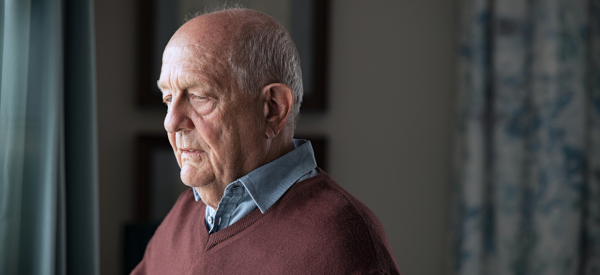For those unfamiliar with Sundowner’s Syndrome, according to AgingCare.com, it occurs in people with Alzheimer’s disease or severe dementia and typically happens at sundown or at sun-up. During these times, the elder is prone to agitation, confusion or fear. For those who have a loved one experiencing Sundowner’s Syndrome, here are 10 suggestions from Caring.com to help cope with the situation: 1. Establish a routine. As Alzheimer’s and dementia progresses, the patient’s ability to reason and perform normal daily activities diminishes. “Different functions and capabilities are lost, creating confusion and frustration. Establishing a routine of behavior management strategies will not only
Read More
Archives for Alzheimer’s
Is there a correlation between hospitalization and dementia? One study says yes
In a blog that we here at Freedom Home Care posted in early November, we addressed the common misconception that Alzheimer’s and dementia are interchangeable terms. Although it’s important to understand that dementia is merely a symptom of Alzheimer’s and other diseases associated with the brain, there is still much to learn about dementia. In an article published on the Science Daily website, editors discussed research that revealed new findings on dementia and its correlation with hospitalization and how it affects the elderly. The study assessed illnesses that required hospitalization and treatment in an intensive care unit and revealed that
Read More
Understanding how dementia differs from Alzheimer’s
As people get older, it becomes increasingly difficult to remember things. For most elderly individuals, it is an unfortunate fact of aging. In recent years, the term senility, which once referred to difficulties with cognizance, has now been replaced with the term dementia. The problem, however, is that now dementia is too often confused with conditions such as Alzheimer’s. In reality, dementia is merely a symptom of Alzheimer’s and other diseases associated with the brain. “A good analogy to the term dementia is ‘fever,’” explained the editors at AlzheimersReadingRoom.com. “Fever refers to an elevated temperature, indicating that a person is
Read More
Thinking outside of the (shoe) box for Alzheimer’s patients
Whenever the folks here at Freedom Home Care go scouting for information that we feel will be helpful to our patients and their families, there’s always that moment when we stumble upon an article that could be considered news of the weird. And today was no exception. Especially so when we learned that shoe developers have designed a pair of sneakers that have been outfitted with a built-in tracking device to locate Alzheimer's patients. “It's very common for people who have dementia to wander off on their own,” say the editors at CBS News Online. “When that happens, frantic family
Read More
Five methods to close the door on Alzheimer's stigma
Every day major strides are made in the efforts aimed at understanding Alzheimer’s disease. The unfortunate but honest truth, however, is that there is still a myriad of misconceptions surrounding the condition. Because of that confusion, those suffering from Alzheimer’s often feel alienated and misunderstood. Depression often goes hand in hand with the already difficult side effects of Alzheimer’s. But some of those feelings could be alleviated by simply talking about the disease with family members and friends. To help open the lines of communication and close the door to depression, current and former members of the National Alzheimer's Association Early-Stage
Read More
Understanding the side effects of medication
Prescription medications are one of the most important items for aging individuals to properly manage. Not only do aging individuals have to ensure that they are taking the proper dose, but they also have to be sure they are staying on the prescription’s schedule and for the correct length of time advised. Additionally, seniors and their caregivers need to be aware of a medication’s side effects. And so is especially the case for individuals who have been diagnosed with dementia or Alzheimer’s. In the following video, Ron Finley, RPh of UCSF’s Memory and Aging Center reviews the side effects of
Read More
Alzheimer’s – 10 ways to detect it on its onset
In a recent blog post here at Freedom Home Care we reported that more than 5 million Americans age 65 and older are thought to have Alzheimer’s disease and that one person in the United States is diagnosed with Alzheimer's disease approximately every 69 seconds. The numbers are staggering, but the forms of treatment are growing and improving every day. An early diagnosis will allow patients to have a say when it comes to decisions about care, transportation, living options, and financial and legal matters. Therefore, it’s important to look for early warning signs. Although Alzheimer’s usually begins after the age
Read More
Making the bedroom a safer place for your aging loved one
This week, we here at Freedom Home Care have dedicated our blogging to in-home safety for sufferers of Alzheimer’s and dementia. Our caregivers, based in Oak Brook, Buffalo Grove, Grayslake, Highland Park, Hinsdale and Chicago’s Gold Coast neighborhood, understand that sometimes it’s necessary to place himself or herself in the position of the patient to anticipate potential dangers in the home. “Caregivers will find that such approaches will be dependent upon the person for whom care is being provided,” say the editors at AgingCare.com. “The most important aspect of caregiving in a home is safety and security, for both the patient
Read More
Six tips for delivering safety in the bathroom
In yesterday’s post, we here at Freedom Home Care discussed the importance of creating a safe at-home living environment for patients with Alzheimer’s and dementia. And we started with the kitchen, one of the home’s top locations for accidents to occur. Bathrooms, however, can also provide special challenges for caregivers. Therefore, we’re delivering some of AgingCare.com’s best tips for how to create an enhanced level of safety in the bathroom. Here they are: 1. Whenever possible, bathtub and toilet areas should supply adequately anchored grab bars in both bathtub area and around the toilet. 2. Products such as raised toilet
Read More
Four tips for creating a safe kitchen environment
Providing a safe home environment for a loved one suffering with Alzheimer's is a top priority. And the caregivers at Freedom Home Care understand how important it is for a patient with Alzheimer’s or dementia to be safe and comfortable in their own homes. Therefore, over the course of the next few days, we here at FHC will dedicate our blog posts to providing helpful tips and methods to ensure the utmost level of in-home safety. According to the editors at AgingCare.com, “in the long run, adapting the home environment is much easier than trying to adapt behaviors that may
Read More



